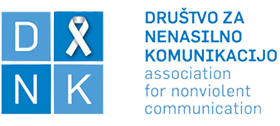Three main principles are the framework of all our activities:
1. Everyone should work towards preventing violence and increasing the safety of victims.
Everyone should act against violence and help victims within their abilities. We believe that professional services and relevant institutions should have protocols to stop violence when it occurs. We have to provide protection for victims of violence. We should avoid myths and stereotypes about violence. Violence happens to people in all walks of life regardless of age, race, religion, nationality or lifestyle.
Violence should not be treated as a part of some other problem, for example poverty or alcoholism. While alcohol can be a trigger for abuse, it is not a cause. We have to consider this; otherwise, we jeopardize a victim even more and cause feelings of guilt.
2. A person who commits violence is the only one to be held responsible.
We strongly believe that no one has the right to use violence against another person and that everyone is held responsible for their own behaviour. “She provoked me” should never be an excuse for violence. When we attribute the cause of violence to the victims, incidents can be trivialized and seen as understandable and more admissible.
In our experience, perpetrators will not modify their behaviour until they change their beliefs that support the use of violence. All professionals, working with perpetrators, should make a clear statement that perpetrators are always responsible for their behaviour.
3. Violence is a learned behaviour. Everyone can learn how to communicate in a nonviolent manner.
Violence is abuse of power. Use of violent behaviour is a personal choice. Everyone can decide to express their feelings and thoughts in a different way. People are not born violent, they learn violence. It is easy to learn violent behaviour in a society which tolerates violence. It is important to create an environment which disapproves of violence and stimulates nonviolent ways of resolving conflicts. Everyone should have a chance to learn nonviolent communication.






